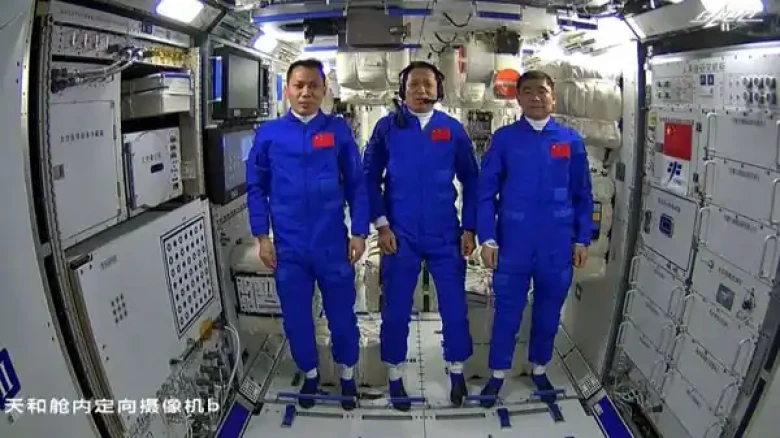Education

The system is meant to collect wastewater, including moisture from the crew's breath and sweat, and transfer it to the Water Processor Assembly (WPA), which produces drinking water.
Digital Desk: Astronauts aboard the
International Space Station have successfully created water by catching
moisture and distilling pee, a huge accomplishment for space travel.
color:black">The team reached this milestone by exploiting the space station's
Environmental Control and Life Support System (ECLSS).
color:black">The system is meant to collect wastewater, including moisture from
the crew's breath and sweat, and transfer it to the Water Processor Assembly
(WPA), which produces drinking water.
In addition, the pee
Processor Assembly (UPA) uses vacuum distillation to collect water from pee.
This distillation process, however, produces urine brine, which still contains
some water components.
Also Read : International Yoga Day 2023: 4 Simple Yoga Asanas for Beginners
color:black">To recover more water from brine, scientists have been testing a
novel device called the Brine Processor Assembly (BPA). The BPA, a wastewater
extraction subsystem, is being tested in a zero-gravity setting.
It takes the brine created
by the UPA and passes it through a specific membrane before blowing warm, dry
air over it to evaporate the water. This process generates humid air, which is
collected by the station's water collecting equipment together with crew breath
and perspiration.
color:black">Christopher Brown, a member of the Johnson Space Centre team,
praised the accomplishment as a significant step forward in the improvement of
life support systems. He emphasized the importance of water recycling in space,
stating that launching with a limited water supply and losing only two pounds
of water while the remaining 98% circulates is a tremendous achievement.
The water created by this
procedure, according to scientists, is cleaner than the water we drink on
Earth. He added that the crew does not consume pee directly, but rather
reclaimed, filtered, and carefully cleansed water.
This astounding achievement highlights the sophisticated
technologies and stringent ground testing used to ensure the production of pure
and potable water in space.
Because of its varied importance, water is crucial for
long-duration space travel. For starters, water is critical for astronaut
survival and well-being. Hydration, food preparation, and personal cleanliness
all require it.
Without a consistent supply of clean water, the crew's health and
performance could be jeopardised. Second, water is essential for maintaining
life support systems on spacecraft. It generates breathing oxygen via
electrolysis and regulates temperature and humidity levels. Furthermore, water
acts as a radiation barrier, shielding the body from dangerous cosmic
radiation.
Leave A Comment